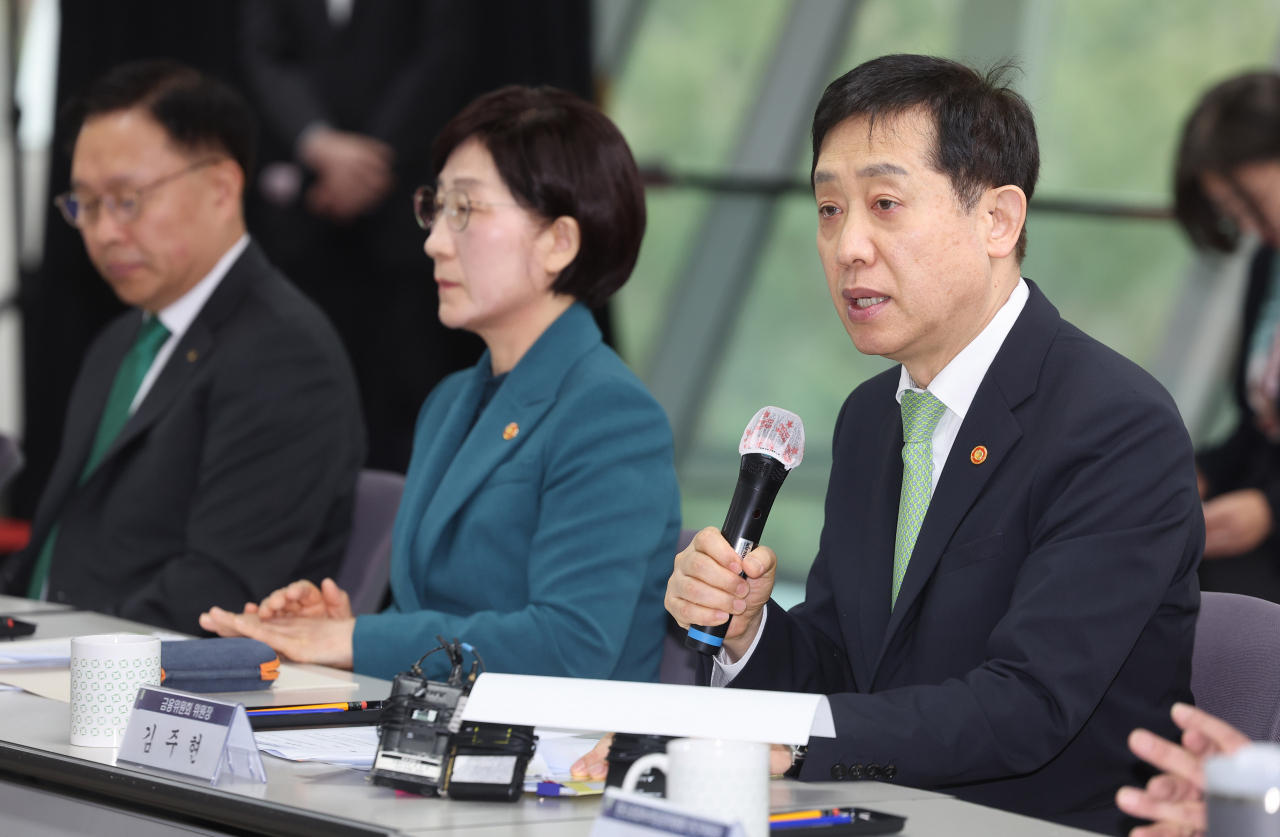Korea pledges W452tr in climate finance until 2030
By Choi Ji-wonPublished : March 19, 2024 - 16:59

The South Korean government and local banks on Tuesday pledged to jointly invest 452 trillion won ($337.4 billion) until 2030 to tackle the climate crisis.
The move aligns with the country's intensified efforts to achieve carbon neutrality by 2050 and bolster domestic firms' competitive edge in overseas markets.
"This unprecedented climate crisis we face today demands action not only to enhance our companies' competitiveness but also for the generations to come," said Kim Joo-hyun, head of the Financial Services Commission, adding, "Through this collaborative effort, we are taking a meaningful first step in tackling climate challenges."
Kim's remarks were made during a meeting in Seoul on Tuesday, attended by government officials and the CEOs of major banks, including Environment Minister Han Hwa-jin and the heads of the country's top five commercial banks.
Among the initiatives announced by the FSC on Tuesday is a 420 trillion won policy financing scheme for carbon reduction.
State-run lenders and funds, such as the Korea Development Bank and the Export-Import Bank, will jointly secure an average of 60 trillion won annually, marking a 67 percent increase from the previous five years. This initiative is estimated to reduce the nation's greenhouse gas emissions by 85.97 million tons by 2030, representing 29.5 percent of the government's reduction target over the next seven years.
Additionally, the KDB and the nation's five major commercial banks -- KB Kookmin, Shinhan, Woori, Hana and NongHyup -- will establish a 9 trillion won "future energy fund" to finance the construction of new green energy facilities. State-run financial institutions will also extend subordinated loans worth 14 trillion won.
While the companies will require approximately 160 trillion won in external capital to construct the essential renewable infrastructure by 2030, this task poses a challenge as loans associated with such projects typically take around 25 years to be fully repaid.
Venture capital of 54 trillion won is essential to attract more investment from the market, and the agency anticipated that 23 trillion won, including the "future energy fund," will act as a catalyst in initiating the venture capital.
The government and private banks are pooling an extra 9 trillion won to boost technological advancement in the climate sector.
According to the FSC, the green technology sector is a highly aspiring market that is projected to see an annual average growth of 24 percent, yet, low profitability at the early stage has often hindered investment. As a consequence, South Korea faces a three-year gap in climate technology advancement compared to other advanced countries, the agency noted.
To support this development, the state-run Industrial Bank of Korea and five commercial lenders will collaboratively raise 3 trillion won, supplemented by 6 trillion won in government funding.
The authorities also vowed systematic improvements in climate finance. Collaborating with the financial sector, the FSC plans to establish regulatory guidelines applying the K-taxonomy to loans, while strengthening support for related financial risk management.



















